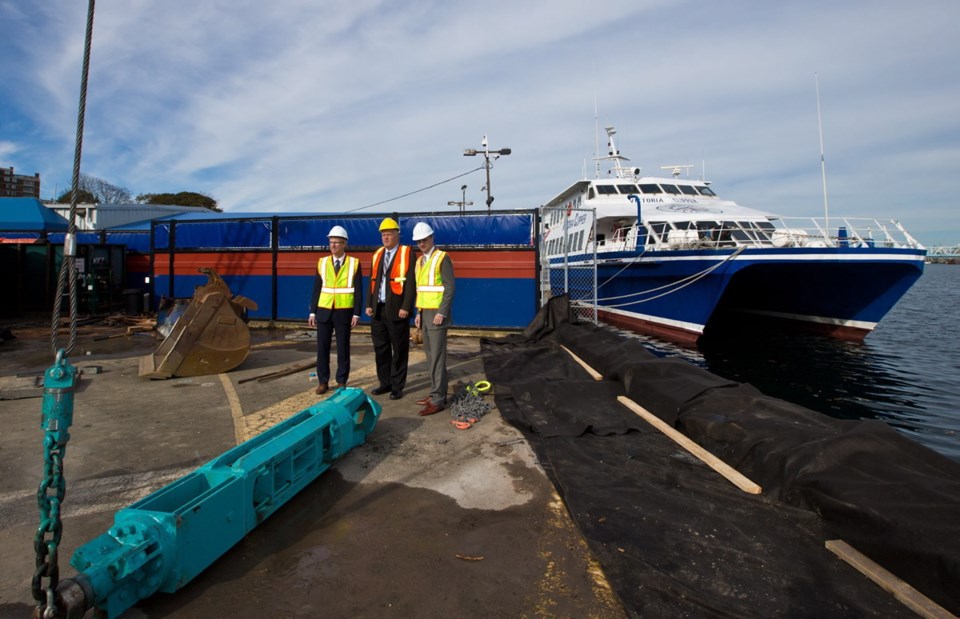A long-term lease deal with the province means security and stability for Black Ball Ferry Line and a chance for the 56-year-old company to look long-term.
With the announcement of the 60-year deal Tuesday — a 30-year term with three 10-year options — Black Ball CEO Ryan Burles said the company is able to fund its dock upgrade and look down the line at how to develop the business.
“It’s allowed us to put $3 million into the ($17.4 million) dock project and know we will have a dock for 60-years-plus to come, and it also gives us that stage to create the new Belleville Terminal,” he said.
Burles said the company, which runs a ferry between Victoria and Port Angeles, can start to consider its aging vessel. “We understand the [MV Coho] has got 20 to 40 years left, but we now have certainty on our leases and we have the challenge to look at maybe finding another vessel, a new one or a used one,” Burles said. “If we can grow the business, we don’t want to stand pat. We want to be better and grow.”
In 2013, Black Ball completed a $4-million upgrade at its Port Angeles facility, where in 2012 it signed a 30-year lease with three 10-year extension options with the Port of Port Angeles. The similar deal signed with B.C. this week is part of the first phase of re-inventing Belleville Street Terminal.
In May, the province entered into an agreement with Black Ball and Clipper Navigation to fund a $17.4-million upgrade to the waterside of the terminal. That phase, now underway, will see Black Ball rebuild its docks over the next two years, replace the dolphins and car ramps, improve U.S. Customs facilities and establish covered walkways for passengers.
Clipper, which is working on a long-term deal with B.C., will repair and upgrade its wharves this winter.
B.C. Transportation Minister Todd Stone said while the first phase of Belleville Street Terminal upgrades is about safety, they are already working on phases two and three.
“Phase three is the most important phase in terms of maximizing economic potential of the facility — the new terminal,” Stone said. “This city is not just a capital city. It’s a major Pacific gateway into the country. So there’s no question while we celebrate the contribution of the city and the private sector and First Nations, we really do need to see the federal government engage and become a partner with us on this project.”
Stone said the cost of that third phase, which would include one terminal building to house Black Ball, Clipper and customs, could cost as much as $40 million, depending on the final scope of the project.
“What I hope is it is a project that represents a true spirit of partnership between the city, province, federal government and First Nations and that it’s an entry point into our country we can be really proud of.”
The second phase of the project, which will improve vehicle access to the site and beautify the street, is expected to cost $3 million.
Victoria Mayor Lisa Helps, who committed $1 million to that phase this year, increased that pledge Tuesday. “It will be at least $2 million coming from a source yet to be revealed,” she said, noting the city is partnering with the private sector to leverage its investment.
Helps was also keen to see the federal government get involved. “We are heading to Ottawa Nov. 30 to meet the new government on this project,” she said.
“We want to say we have made a significant investment and that this is a border crossing and we are looking for the new Liberal government — with infrastructure as a priority — to make a third phase of investment.”
About 750,000 passengers are brought in by the Coho and Clipper each year and as much as $300 million in cargo is ferried by the Coho between B.C. and Washington state annually.



